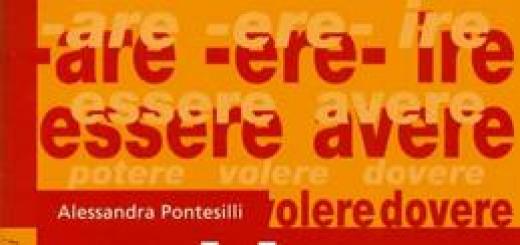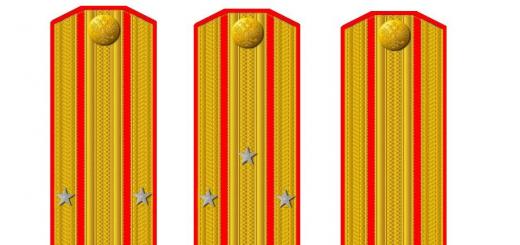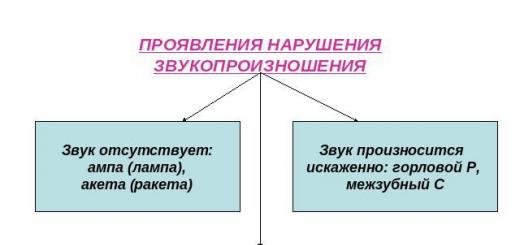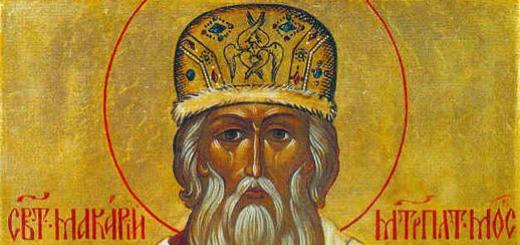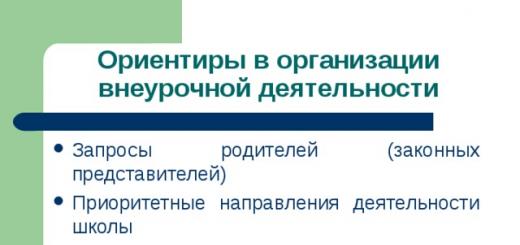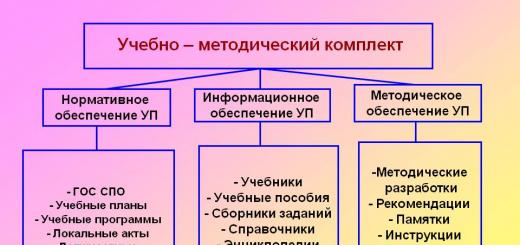Conscience
And so conscience - what is it? Let's first see what Vicki thinks about this:
Conscience is the ability of an individual to independently formulate moral duties and exercise moral self-control, demand their fulfillment from himself and evaluate the actions he commits; one of the expressions of a person’s moral self-awareness. It manifests itself both in the form of rational awareness of the moral significance of the actions performed, and in the form of emotional experiences - feelings of guilt or “remorse” [source not specified 1736 days], that is, it links together the mind and emotions.
To some extent, this is indeed true.
But let's look at it deeper, removing all the developments and raids.
We all know that there is a certain core in a person, it is not in vain that they say that a person does not change, indeed, the core is given alone for life, and it does not change. But sometimes we hear one of our friends tell us that a mutual acquaintance, what a great fellow he is, he has changed (and maybe in...
There were Darwinists who argued that conscience is an unnecessary feeling that should be gotten rid of. It is interesting to quote the words of Hitler, who, as is known, was one of the thinkers of social Darwinism (the doctrine according to which the laws of natural selection and the struggle for existence, which, according to Charles Darwin, operate in nature, extend to human society): “I liberate man from the humiliating chimera called conscience.” And further…
In ancient Greek. mythology S. gets fantastic. depiction in the form of the image of Erinyes, goddesses of curse, revenge and punishment, pursuing and punishing criminals, but acting as benefactors (eumenides) in relation to the repentant. In ethics, the problem of personal socialism was first posed by Socrates, whom he considered the source of morals. a person’s judgments are his self-knowledge (ancient Greek….
There was one ancient wisdom among the people: “Even though conscience has no teeth, it can gnaw the soul.”
And it just so happened that people began to forget these words, like many other important things. But it was not in vain that our ancestors made up proverbs about conscience. They knew that without her the Russian people would be lost and they would not be happy.
So, what proverbs about conscience and duty should every person know? Why does he need them? And what is conscience anyway?
What is conscience?
It just so happens that each person has his own conscience. "Why is that?" - you ask. Yes, because every person is built differently. Some are brought up in good families and taught goodness and order, while others are raised in evil ones. Therefore, growing up, people have different ideas about morality, and accordingly, their conscience is different.
According to psychologists, conscience is the moral and ethical rules that determine the inner world of an individual. Violation of these unwritten laws leads to the fact that a person begins to experience...
What is conscience and what does it mean to live according to conscience?
Most people have some kind of internal censor that helps them distinguish between positive and negative aspects in life. It is important to learn to listen to the voice inside yourself and follow its advice, and then it will serve as a guide to a happy future.
What does conscience mean?
There are several definitions of this concept: for example, conscience is considered the ability to independently identify one’s own responsibilities for self-control and evaluate committed actions. Psychologists, explaining what conscience is in their own words, give the following definition: it is an internal quality that gives a chance to understand how well a person understands his own responsibility for the act committed.
To determine what conscience is, it is necessary to note the fact that it is divided into two types. The first includes actions that a person performs with a certain moral background. The second type involves the emotions experienced...
People always talk about conscience, sometimes without even understanding what is meant by this concept. Let's figure out what conscience is. Conscience is often compared to a compass, which is so necessary for travelers to avoid getting into trouble. In appearance, it is a simple device with a magnetized arrow that always points north. But if it works correctly and if it is used in conjunction with a detailed map, disaster can be avoided. This is very similar to conscience. If she is properly trained, she will protect us, but only if we respond quickly to her warnings.
Different opinions about conscience
Without conscience we would be lost. There are many theories regarding the definition of conscience. For example, the Bible explains what conscience is. Literally, this word means “knowing oneself.” This ability to know ourselves is given to us by God. It turns out that we can see ourselves from the outside and evaluate our actions, decisions and feelings. Conscience not only contributes to our joy, but can greatly...
“You have no conscience!”, “I wish I had a conscience!”, “Conscience is the best controller.” "Remorse". We have heard these and many other statements about conscience more than once or twice in our lives. So what is conscience? Why do we need it? How do we know whether we have it or not, and how not to lose it?
Conscience is a kind of regulator of our relationships with people around us. At the same time, everyone has their own regulator. A person’s conscience is a purely individual concept, there is no standard in it, it cannot be measured and said: “My conscience is greater than yours.” It all depends on how capable a person is of regulating his moral and ethical behavior, the norms of which are different for everyone and depend on upbringing, social environment, personal qualities, and life experience. At the level of feelings, conscience helps us evaluate the wrongness or correctness of actions or deeds.
What is conscience: conscience in life examples
Conscience has a strong influence on our lives and can...
Following the discussions
Conscience: a brief summary of the discussion of the same name
Who among us is not familiar with our inner voice, called conscience, which either accuses us from within and oppresses us, or gives us a feeling of joy and satisfaction for what we have done!?! This is our internal controller and judge, incorruptible and impartial. Just as a hungry person cannot convince himself that he is full, and an exhausted person cannot convince himself that he is cheerful and full of strength and energy, so we cannot convince ourselves that we have acted well and correctly when our conscience convicts us of what we did wrong.
I. WHAT IS CONSCIENCE?
1. Dictionary definitions:
Ushakov's Dictionary: Conscience is an internal assessment, an internal consciousness of the morality of one’s actions, a sense of moral responsibility for one’s behavior.
Dictionary of Brockhaus and Efron: Conscience is a person’s moral consciousness, expressed in the assessment of one’s own and others’ actions, based on a certain criterion of goodness and...
1) Conscience is a category of ethics that expresses an individual’s ability to exercise moral self-control, to determine from the standpoint of good and evil the attitude towards one’s own and others’ actions and lines of behavior. S. makes his assessments as if independently of practicality. interest, but in reality, in various manifestations, a person’s S. reflects the impact on him of specific. historical, social class living conditions and education. S. does not generate, but only consolidates and reproduces those values and assessments that have been developed in society. practice, and therefore ultimately depends on the class. and societies, human belongings. Scientific atheism is opposed to nihilism. attitude towards S., considering her creatures to be a feature of the spiritual appearance of the individual, and against the attitude towards her as an unchangeable and infallible judge given to us by God. With the progress of social and cultural progress intelligence. honesty as one of the requirements of S. more and more urgently requires the rejection of relit, faith, as having no logical. and factual justifications, as well as...
Conscience is the ability of the human spirit to distinguish between good and evil, the consciousness of good and evil (St. Ignatius Brianchaninov), a natural law that requires from the human mind a life pleasing to God (St. Abba Dorotheus).
Conscience is a desirable or active force (ability) of the human spirit, pointing a person to good and demanding its fulfillment. Being closely connected with reason and feeling, conscience has a practical character and can be called practical consciousness (St. Theophan the Recluse). If the mind knows and the senses feel, then conscience, as an active force, determines the type of activity of the spirit in relation to an object cognizable by the mind and sensed by the senses.
In the word “conscience,” the root “news” together with the particle “co” indicates “communication” and “co-action.” Human conscience initially did not act alone. In man before the Fall, she acted together with God Himself, abiding in His human soul...
Social Psychology. Dictionary under. ed. M.Yu. Kondratieva
Conscience is the ability of an individual to exercise moral self-control, independently formulate moral duties for oneself, demand that one fulfill them and evaluate the actions performed; one of the expressions of a person’s moral self-awareness. WITH….
Large dictionary of esoteric terms - edited by Doctor of Medical Sciences. Stepanov A.M.
(Russian, joint message, generalized knowledge). 1. The feeling and consciousness of moral responsibility for one’s behavior and actions to oneself, to the people around him, to society; moral principles, views, beliefs. 2. In occultism – the manifestation of criteria in an individual...
Philosophical Dictionary
(shared knowledge, know, know): the ability of a person to be aware of his duty and responsibility to other people, to independently evaluate and control his behavior, to be a judge of his own thoughts and ...
What is conscience?
What is conscience and can you confidently be guided by your conscience? How does a Bible-trained conscience help you make good decisions in life?
Conscience
Walking down a busy street, you pass an elegantly dressed woman who, without noticing, drops a wad of money. Bending down to pick this one up
pack, you see a woman hastily getting into an expensive car.
What will you do? Will you call out to her or quickly hide the money in your pocket?
It depends on your conscience. What will she tell you? More importantly: can you trust her? Can you confidently guide your conscience?
Conscience is a natural sense of conviction about what is good and evil, just and unjust, moral and immoral. In the Bible, the principle of conscience is described in Romans 2:14, 15 in these words:
“For when the Gentiles, who do not have the law, do what is lawful by nature, then, not having the law...
Introduction
Even in ancient times, philosophers and sages pondered about this voice: where does it come from and what is its nature? Various assumptions and theories have been put forward. The presence of this voice created special problems for philosophers and scientists of the “new time”, who see in man only a material being and deny the existence of the soul.
There were Darwinists who argued that conscience is an unnecessary feeling that should be gotten rid of. It is interesting to quote the words of Hitler, who, as is known, was one of the thinkers of social Darwinism (the doctrine according to which the laws of natural selection and the struggle for existence, which, according to Charles Darwin, operate in nature, extend to human society): “I liberate man from the humiliating chimera that...
Conscience refers exclusively to internal moral concepts. It implies a person’s ability to evaluate his behavior, his motives, and internal desires from the standpoint of awareness of his own imperfection. A person’s conscience is always a conversation alone with himself, therefore it excludes the presence of categories such as shame and fear, which are more of an external response to non-compliance with generally accepted norms. The feeling of one's imperfection and dissatisfaction with oneself leads a person to moral experiences known as “reproaches of conscience” or “pangs of conscience.”
In Christianity, conscience is one of the gifts given to man by God. This is good for a person, as it does not allow a person to completely turn to the path of sin. Christians are instructed to train their conscience, which means to constantly reflect on the conformity of their actions with Christian morality.
If incorrect behavior leads a person to a “troubled conscience”, on the contrary, successful...
a category of ethics that embraces moral issues. self-control of the individual, the ability of a person to independently formulate moral instructions for himself, demand their fulfillment from himself and evaluate his actions. In ancient Greek. mythology S. gets fantastic. depiction in the form of the image of Erinyes, goddesses of curse, revenge and punishment, pursuing and punishing criminals, but acting as benefactors (eumenides) in relation to the repentant. In ethics, the problem of personal socialism was first posed by Socrates, whom he considered the source of morals. of a person’s judgments, his self-knowledge (ancient Greek ??????????, like the Latin conscientia, means both S. and awareness). In this form, Socrates advocated the liberation of the individual from the unconditional power of societies over him. and tribal traditions. However, only in modern times the category S. acquires great importance in ethics, which reflected the process of liberation of the individual from feudal-class, guild and church. regulation during the development of bourgeois. relationships. The question of personal S. is one of the centers. in the ideology of the Reformation (Luther’s idea that the voice of God is present in the consciousness of every believer and guides him regardless of the church). Materialist philosophers of the 17th–18th centuries. (Locke, Spinoza, Hobbes, other materialists of the 18th century), denying the innate character of S., draw attention to its dependence on societies. education, living conditions and interests of the individual. Limiting themselves to only stating this dependence, they, as a rule, come to a relativistic interpretation. Locke, for example, says that “... if we cast a glance at people as they are, we will see that in one place some feel remorse conscience due to the commission or non-commitment of actions that others in another place consider worthy" (Izbr. filos. prod., vol. 1, M., 1960, p. 99). A similar idea is expressed by Holbach (see “System of Nature”, M., 1940, p. 140). Relativistic interpretation of S., which has an anti-feud among the enlighteners. and anticleric. direction, proclaiming the freedom of personal S., nevertheless deprives it of meaning. To the extent that S. is of a personal, “internal” nature, it makes it an object of influence from the state and society as a whole (although educators do not deny that S. is the prerogative of the individual. Holbach defines S. as an assessment, which “... in our own soul we give to our actions" - "Pocket Theology", M., 1959, p. 172). In contrast to this, idealistic. ethics developed the idea of an autonomous individual who determines morals independently of society. law. Thus, Rousseau believes that the laws of virtue are “written in the hearts of everyone” and are sufficient to know them.” ..deep into yourself and, in the silence of passions, listen to the voice of your conscience" ("On the influence of sciences on morals", St. Petersburg, 1908, p. 56). Kant considers the only truly moral law for a rational being to be that which it gives to itself ". The idea of personal autonomy ultimately led to an aprioristic interpretation of S. According to Kant, S. is not something acquired. Every person, as a moral being, has a conscience from birth. The idea of personal autonomy was expressed even more sharply by Fichte, in view ... of which the only criterion of morality is the self-esteem of the “pure self,” and the subordination of someone to external authority is unscrupulousness. Subsequently, this individualistic interpretation of socialism was taken to the extreme in existentialism, in the ethical concept of which it is denied the universal nature of the moral law: for example, Sartre considers the only criterion of morality to be adherence to an “absolutely free” individual plan, a person’s refusal of the “bad belief” in the existence of certain objective criteria. Hegel already gave criticism of the relativistic and subjectivist understanding of socialism , which showed the contradictory nature of S. S. T. ZR. Hegel, S. “has its truth in the immediate certainty of itself,” “determines it based on itself.” But this self-reliability of S. entails the “arbitrariness of an individual,” which can “attribute... its own conscientiousness” to any content. Therefore, Hegel points out, S. acquires its reality only in “universal self-consciousness” thanks to the “universal environment” (society) in which a person finds himself (see Soch., vol. 4, M., 1959, pp. 339– 52). However, recognizing the priority of societies. consciousness over the personal, Hegel interprets it objectively and idealistically, as the embodiment of the absolute. spirit, but its immediate. considers religion to be an expression in the consciousness of the individual: “So, conscience, in the greatness of its superiority over a certain law and any content of duty... is a moral genius that knows that the inner voice of its direct knowledge is the voice of the divine... This lonely worship is at the same time time is essentially community worship..." (ibid., pp. 351–52). Feuerbach finds materialistic. an explanation for the fact that S. appears to a person as the voice of his inner self and at the same time as a voice coming from the outside, entering into an argument with the person and condemning his actions. He calls S. “another self” of a person, but points out that this alter ego does not come from God and does not arise “by a miraculous way of spontaneous generation.” “For, as belonging to this community, as a member of this tribe, this people, this era, I do not have in my conscience any special or other criminal statute. .. I reproach myself only for what another reproaches me for... or at least I could reproach me if I knew about my actions or myself became the object of an action worthy of reproach" (Elected philosophical works, t 1, M., 1955, p. 630). The Marxist understanding of socialism reveals its social nature and shows its determination by the conditions of human life and his ideological and social position. “A republican has a different conscience than a royalist, a propertied - different from that of the have-not, from the thinker - different from the one who is unable to think" (K. Marx, see K. Marx and F. Engels, Works, 2nd ed., vol. 6, p. 140) The sources of personal conflicts should ultimately be sought in social contradictions that in one way or another affect the individual and are reflected in his consciousness. Contradictions between the interests of different classes, between social and personal interests, between the reflection of socio-historical necessity in the will of societies. institutions and understanding of a private person confront the individual with the need for his own choice, alternatives to which constitute the problem of his personal self. It is in this sense that Lenin’s instruction should be understood that “the idea of determinism, establishing the necessity of human actions, in no way destroys either reason or a person’s conscience, nor an assessment of his actions" (Works, vol. 1, p. 142). Marxism does not deny the specifically personal character of socialism; it only reveals its content: the higher the measure of societies. development of the individual, her social activity and consciousness, the greater the role played by S. in her life. The conditions for this development of the individual are the elimination of class-antagonistic. relations in society and then the development of communist. relations, as they become established, legal coercion will gradually give way to morality. influence, and this influence itself will increasingly coincide with the commands of personal S. and therefore, in the overwhelming majority of cases, will be carried out through personal awareness by the individual. "...In human relationships, punishment will be effective and will be nothing more than a sentence that the offender pronounces on himself... In other people, on the contrary, he will meet natural saviors from the punishment that he himself imposed on himself..." (Marx K. and Engels F., Soch., 2nd ed., vol. 2, p. 197). Lit.: Excellent definition
Incomplete definition ↓
Moral theologyConscience- the human ability to distinguish and, the consciousness of good and evil (St. Ignatius Brianchaninov), natural law, requiring from the human mind a life pleasing to God (St.).
Conscience is a desirable or active force (ability) of the human spirit, pointing a person to good and demanding its fulfillment. Being closely connected with reason and feeling, conscience has a practical character and can be called practical consciousness (st.). If the mind knows and the senses feel, then conscience, as an active force, determines the type of activity of the spirit in relation to an object cognizable by the mind and sensed by the senses.
In the word “conscience,” the root “news” together with the particle “co” indicates “communication” and “co-action.” Human conscience initially did not act alone. In man before the Fall, she acted together with Himself, abiding in His human soul. Through conscience the human soul received messages from God, therefore conscience and is called the voice of God or the voice of the human spirit, enlightened by the Holy Spirit of God. The correct action of conscience is possible only in its close interaction with the Divine grace of the Holy Spirit. This was the human conscience before the Fall. However, after the fall, conscience was influenced by passions, and its voice began to fade due to the diminishment of the action of Divine grace. Conscience as the inner voice of God gradually turned into external conscience, that is, the ability to act for the sake of temporary, earthly, transitory interest, and not in the name of fulfilling the Divine commandment. External conscience led to hypocrisy, to the justification of human sins. Restoring the correct action of conscience is possible only under the guidance of the Divine grace of the Holy Spirit, achievable only through a living union with God, revealed by faith in the God-man Jesus Christ.
The conscience of a Christian has God as its source. Autonomy of conscience, that is, assigning to oneself the absolute right of self-determination in the moral sphere, is inherently a sin.
How to hear the voice of conscience?
Conscience manifests itself in a person in the form of moral feeling. Intending to perform, performing and/or having already performed some action that presupposes the possibility of its moral evaluation, a person, to one degree or another, internally feels how this action corresponds or.
The correctness of a person’s awareness of his moral actions depends on a number of factors, including: on the influence of the environment within which he lives (determined by cultural, religious traditions, local laws, etc.), on the factor of education, self-education, on the individual moral state .
Under the influence of these and some other factors, the voice of conscience, as a spokesman for the natural moral law, can be suppressed, muffled, and distorted. In this regard, what may seem good to representatives of some religious, social or ethnic groups may be assessed as evil by representatives of others (for example, blood feud, sexual promiscuity, attitudes towards abortion, etc.).
In relation to the definition of states of conscience, adjectives such as “good” (), “pure” (), “burnt” (), “vicious” (), “defiled” (), etc. are used.
Among the functions of conscience, there are three main ones. As a legislator, conscience indicates to a person how he should act in a given case, so that this action (plan, action, etc.) corresponds to what God has established. As a witness or judge, conscience determines whether a person has broken the law or not, whether he is right or wrong. Finally, the function of the bribe-giver is expressed in the fact that, depending on whether a person has violated the requirements of the moral law or not, he experiences either remorse and or satisfaction from the action taken.
St. Ignatiy Brianchaninov:
“Conscience guided man before the written Law. Fallen humanity gradually acquired an incorrect way of thinking about God, about good and evil: the false mind communicated its wrongness to conscience. The Written Law has become a necessity for guidance to true knowledge of God and to God-pleasing activities. The teaching of Christ, sealed by holy baptism, heals the conscience from the wickedness with which sin has infected it. What has been returned to us, the correct action of conscience, is supported and elevated by following the teachings of Christ.”
Stv. Feofan the Recluse:
"Conscience. Conscious of being obligated to please God, the spirit would not know how to satisfy this obligation if conscience did not guide it in this. Having communicated to the spirit a piece of His omniscience in the indicated natural symbol of faith, God inscribed in it the requirements of His holiness, truth and goodness, instructing it to observe their fulfillment and judge itself in serviceability or
malfunctions. This side of the spirit is conscience, which indicates what is right and what is not right, what pleases God and what does not please, what should and should not be done; having indicated, he imperiously compels one to do it, and then rewards it with consolation for fulfillment, and punishes it with remorse for non-fulfillment. Conscience is a legislator, guardian of the law, judge and rewarder. It is the natural tablet of God’s covenant, which extends to all people.”
Patriarch Kirill:
We most often imagine God's Judgment to be the same as human judgment. But Divine judgment is already at work, for the Lord was pleased to include judgment in the very nature of man. A person is capable of judging himself. By what law? State? No, according to the law of your conscience. And we know that very often the judgment of conscience turns out to be the most formidable for us. I had to meet with criminals sentenced to long prison terms. And when in a confidential conversation I asked what was most difficult for them now, very often they told me: “Conscience. I can't calm down. The punishment is already behind us, but the conscience does not recede.”
The court of conscience is the harshest and most impartial court, this is the court of God, because the Lord put a moral sense into our nature. Man is the only living creature that is capable of judging itself. And, probably, the Last Judgment will be a continuation of this judgment. Due to human limitations, we forget a lot, sins and conflicts fade from memory, and our conscience calms down. And sometimes conscience is destroyed by vices, drunkenness, or simply the habit of committing lawlessness. But God’s Last Judgment will make up for all the imperfections of our own human judgment: bad memory, cynicism, negligence, deviation from the Divine commandments - everything that did not allow us to fairly judge ourselves during our lifetime.
From the word on Meat Week after the Liturgy in the Cathedral of Christ the Savior in Moscow, February 19, 2017
And it just so happened that people began to forget these words, like many other important things. But it was not in vain that our ancestors made up proverbs about conscience. They knew that without her the Russian people would be lost and they would not be happy.
So, what proverbs about conscience and duty should every person know? Why does he need them? And what is conscience anyway?
What is conscience?
It just so happens that each person has his own conscience. "Why is that?" - you ask. Yes, because every person is built differently. Some are brought up in good families and taught goodness and order, while others are raised in evil ones. Therefore, growing up, people have different ideas about morality, and accordingly, their conscience is different.
According to psychologists, conscience is the moral and ethical rules that determine the inner world of an individual. Violation of these unwritten laws leads to the fact that a person begins to experience feelings of guilt and fear. In common parlance this is called remorse.
Conscience for the Russian people
The Slavs often composed proverbs about conscience and duty. Because they considered spiritual virtues to be the most important qualities of a person. So, one of their proverbs says: “A feather bed is good, but without a conscience you still have trouble sleeping.” And hundreds of similar examples can be given, which proves the above words.
But why is that? In fact, everything is very simple, the essence of what is happening lies in the fact that the Russian people have long endured oppression from other countries. The fraternal unity of the entire people helped us survive in such times. And to do this you had to trust the one who protects your back.
That is why Russians devoted so much time to instilling the concept of conscience in their children. They were not lazy to create more and more proverbs about conscience. And they are firmly rooted in the minds of their descendants. So it was customary in Rus' that “Conscience is the eye of God,” and whoever is deprived of it, the road to heaven is closed.

Psychological aspect
As they say, “The soul is not a neighbor - you can’t miss it.” Now many people have begun to take care of their body in order to always look young and attractive in the future. But, alas, they completely forget about their spiritual world.
After all, what do proverbs teach about conscience? That's right, because it needs to be protected. For example, “Even if the dress is black, but the conscience is white.” Or “It’s good to live with his conscience, but it will be bad to die with it.” And it must be said that such remarks are correct not only from a moral point of view. Thus, psychologists have repeatedly proven the importance of harmony of the inner world for a person.
So, let's look at how conscience affects our lives. It would seem that you have closed your eyes to morality - and easily increase your income: deceive people, rob, betray, do dirty tricks, and so on. There is just one problem - remorse. And they inevitably leave their mark on a person’s personality.
How else? After all, daily experiences, fear, self-disappointment and dissatisfaction, one way or another, will affect the psyche. Sooner or later this will develop into depression or affect a person’s psychological health. This is exactly what proverbs about conscience are trying to tell us about. It is important that we are able to protect our souls from such torment.

The best folk proverbs about conscience
Now that we have figured out the purpose of conscience, we can move directly to the proverbs themselves. It is simply impossible to list them all, so we will focus on the best of them:
“For conscience and honor, I wouldn’t mind cutting off my own head.”
“A rich man cannot buy his conscience, but he can lose his old one.”
“His conscience is like a leaky sieve.”
“A troubled conscience is worth ten executioners.”
“To change your faith is to change your conscience.”
“His conscience was suffocated in a bottle last year.”
“The guilty person fears everything, but the right person fears nothing.”
Found a mistake? Select it and press left Ctrl+Enter.
a person’s ability to exercise moral control and moral self-esteem, an inner voice that prescribes to him norms of obligation and prohibitions. From the point of view of S. Freud, conscience is the internal perception of the inadmissibility of the manifestation of a person’s desires.
S. Freud's ideas about conscience were contained in such works as “I and It” (1923), “Discontent with Culture” (1930). He did not consider conscience to be something original in man. He associated its occurrence with the psychosexual development of the child. A small child is immoral. It has no internal inhibitors against the desire to satisfy desires. The role of moral censorship is played by parents who encourage or punish the child. Subsequently, external restraint on the part of parents, educators and authorities moves inside the person. Their place is taken by a special authority, which S. Freud called the “Super-Ego”. This Super-I is precisely the conscience of a person, personifying internal prohibitions and norms of obligation.
Being the personification of conscience, the Super-Ego concentrates in itself all the moral restrictions in a person. In Z. Freud’s understanding of the Super-Ego, conscience not only absorbs the authority of parents, but also becomes the bearer of traditions, all values preserved in culture (in this sense, Z. Freud recognized that part of the psychological truth that was contained in the statement that the conscience of the divine origin is true, but he noted that God did not work enough with regard to conscience, since most people received it in rather modest amounts).
According to Z. Freud, conscience supervises and judges a person’s actions and thoughts. She acts as a censor, making strict demands on the human self. At the first stage of development, conscience was the root cause of renunciation of instincts. Then, at the second stage of development, each refusal of desire became a source of conscience. At the same time, there was an increase in the severity and intolerance of conscience. As a result of corresponding development, conscience acquired such a punitive function and became so aggressive that it constantly dominates a person, causing him fear (fear of his own conscience).
According to S. Freud, at the second stage of development, conscience reveals a peculiar trait that was alien to it at the first stage of development, namely, “the more virtuous a person is, the harsher and more suspicious the conscience becomes.” As long as things are going well for him, a person’s conscience is not particularly demanding. But as soon as misfortune happens, conscience hits a person with all its force. Misfortunes seem to strengthen the power of conscience over a person who withdraws into himself, extols the claims of his conscience, and admits his sinfulness.
Reproaches of conscience give rise to feelings of guilt. Gradually, the consciousness of guilt becomes the lot of man. Fear of one's own conscience exacerbates the feeling of guilt, which arises even despite a person's refusal to satisfy his desires. Thus, according to S. Freud, the threat of external misfortune, associated with the loss of love and punishment from external authority, turns into internal misfortune, caused by a tense consciousness of guilt.
All this means that the understanding of conscience in psychoanalysis comes from the recognition of its duality. On the one hand, conscience acts as a virtuous principle in a person, contributing to his moral self-control and moral self-esteem, and on the other hand, its severity and aggressiveness generate fear in a person and aggravate his sense of guilt, which can lead to mental disorder.
The internal conflict between the desire to satisfy a person’s instincts and the dictates of conscience that restrain them is the fertile soil on which neuroses grow. Hence the special attention of psychoanalysts to understanding the origins of the formation and nature of conscience in order to better understand the causes of neurotic diseases and their successful treatment.
The problem of conscience was considered in the works of E. Fromm (1900–1980). In Man for Himself (1947), he distinguished between the authoritarian conscience and the humanistic conscience. Authoritarian conscience is the voice of an internalized external authority (parents, church, state, public opinion), whom a person strives to please and whose displeasure he fears. The prescriptions of this conscience are determined not by the value judgments of the person himself, but by the commands and prohibitions that are given by authorities. Norms given from outside become norms of conscience not because they are good, but because they are given by authority. In fact, authoritarian conscience is what was described by S. Freud as the Super-Ego.
Considering the nature of authoritarian conscience, E. Fromm identified a clear conscience and a guilty conscience. “A clear conscience is the consciousness that authority (external and internal) is pleased with you; a guilty conscience is the consciousness that he is dissatisfied with you.” A clear conscience gives rise to a feeling of well-being and security, while a guilty conscience gives rise to fear and insecurity. The paradox, according to E. Fromm, is that a clear conscience is the product of a feeling of humility, dependence, powerlessness, sinfulness, and a guilty conscience is the result of a feeling of strength, independence, fruitfulness, and pride. The paradox is that a guilty conscience turns out to be the basis for a clear conscience, while the latter should give rise to a feeling of guilt.
Unlike authoritarian conscience, humanistic conscience is a person’s own voice, independent of external sanctions and rewards. This conscience is the reaction of the entire personality to its correct functioning or to its violation. According to E. Fromm, humanistic conscience is “our reaction to ourselves,” “the voice of our true Self, which requires us to live fruitfully, develop fully and harmoniously - that is, to become what we potentially are.” Actions, thoughts and feelings that contribute to the disclosure of personality give rise to a sense of authenticity characteristic of a humanistic clear conscience, and actions, thoughts and feelings that are destructive to the personality give rise to feelings of anxiety and discomfort characteristic of a guilty conscience.
E. Fromm believed that in real life every person has two types of conscience - authoritarian and humanistic. In psychoanalytic therapy it is important to recognize the strength of each of them and their relationship in the patient. Thus, it often happens that the feeling of guilt is perceived by consciousness as a manifestation of an authoritarian conscience, while in the dynamics its occurrence is associated with a humanistic conscience, and an authoritarian conscience is a rationalization of a humanistic conscience. “At the conscious level, a person may feel guilty for the fact that authorities are dissatisfied with him, while unconsciously he feels guilty for living without meeting his own expectations.” One of the tasks of psychoanalytic therapy is precisely to enable the patient to distinguish within himself the effectiveness of both types of conscience, to understand that immoral behavior can be perceived, from an authoritarian point of view, as “duty”, to listen to the voice of the humanistic conscience, which is the essence of moral experience of life.
Conscience
the highest moral feeling of a person, based on an individually accepted system of moral norms, the violation of which by this person or other people causes him to have specific experiences called remorse. Such experiences include a feeling of shame, sadness about what was done, a desire to change, to correct what happened. Conscience is one of the signs of a high level of personal development of a person. Loss of conscience leads to psychological degradation of a person.
CONSCIENCE
the ability of an individual to independently formulate his own moral duties and exercise moral self-control, demand that he fulfill them and make a self-assessment of his actions; one of the expressions of a person’s moral self-awareness.
It manifests itself both in the form of rational awareness of the moral significance of the actions performed, and in the form of emotional experiences - for example, remorse.
According to S. Freud, conscience is an internal perception of the inadmissibility of certain desires, with an emphasis on the fact that this inadmissibility is undoubted and does not need proof. It can be understood as a special mental agency whose purpose is to provide narcissistic satisfaction emanating from the Super-Ego, and for the purpose of this, it continuously observes the actual I and compares it with the ideal.
CONSCIENCE
A well-founded set of internalized moral principles that allows one to evaluate the rightness and wrongness of actions performed or observed. Historically, the theistic view equated conscience with the voice of God, and therefore considered it to be innate. According to the modern point of view, prohibitions and obligations determined by conscience are acquired; in fact, Freud's characterizations of the superego were an attempt to explain the origin, development and mode of functioning of conscience. See moral development.
Conscience
the ability of an individual to exercise moral self-control, independently formulate moral duties for himself, demand that he fulfill them, and evaluate his actions; one of the expressions of a person’s moral self-awareness. S. manifests itself both in the form of rational awareness of the moral significance of the actions performed, and in the form of emotional experiences (for example, “S’s remorse”). L.A. Karpenko
CONSCIENCE
the highest form of a person’s ability for moral self-control, a side of his self-awareness. In contrast to motive (sense of duty), self-assessment also includes self-assessment of actions already committed based on a person’s understanding of his responsibility to society. S. obliges a person through his actions not only to earn respect for himself (not to humiliate himself), but also to devote himself to serving certain values, other people, society, and humanity. S., in addition, presupposes the ability of an individual to be critical of his own and others’ opinions in accordance with the objective needs of society, as well as a person’s responsibility not only for his own actions, but also for everything that happens around him. S. is a socially educated ability of a person. It is determined by the measure of its historical development, as well as its social position in the objective conditions in which it is placed. S. can manifest itself both in the rational form of awareness of the moral significance of one’s actions, and in a complex of emotional experiences (“S.’s remorse”). The upbringing of self in every person is one of the most important aspects of personality formation. S. is one of the main, although hidden, factors influencing the emergence and course of most conflicts. S. plays a special role in the content and dynamics of intrapersonal conflicts. S. acts as the core of morality. The behavior of a conscientious person in conflicts is, as a rule, constructive, while that of an unscrupulous person is destructive. “Without S. there is nothing in a person that would elevate him above an animal, except the sad advantage of wandering without any guidance from error to error” (J. J. Rousseau). For example, problems with socialism among many domestic leaders are the primary source of a number of social conflicts. "WITH. reigns, but does not rule” was believed in the last century. In the 21st century S., apparently, no longer reigns. Cultivating self-esteem in every person is the most important condition for the prevention and constructive resolution of most conflicts.
